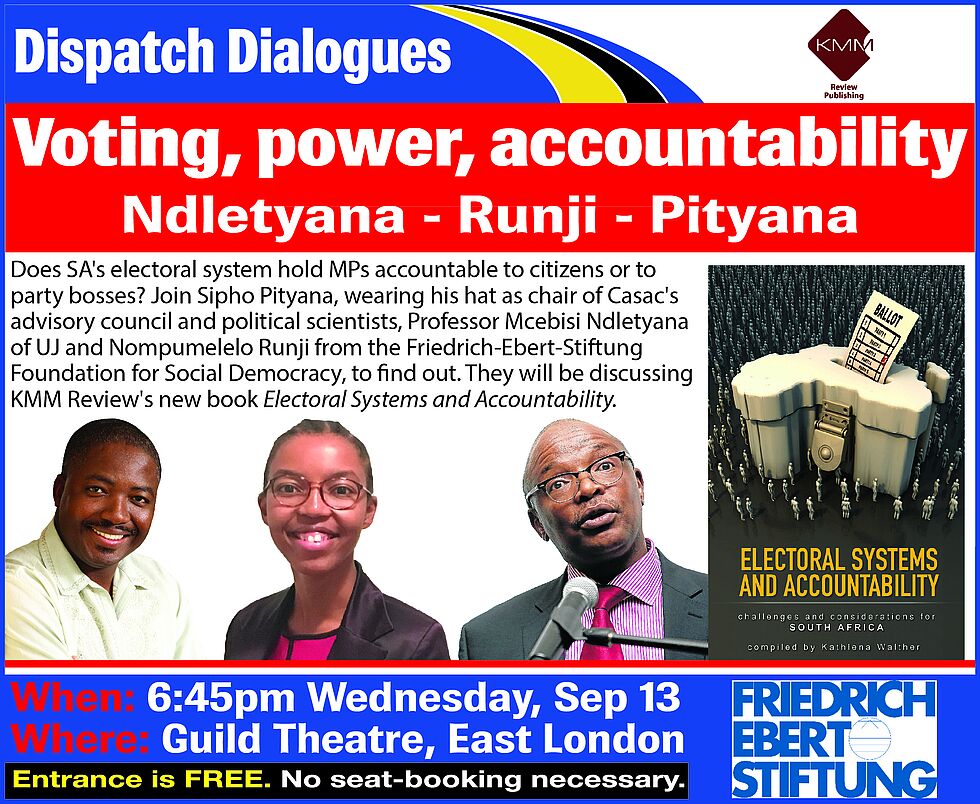SA’s proportional voting system has failed masses
The Daily Dispatch in partnership with the Friedrich-Ebert-Stiftung and KMM Reviews hosted a dialogue to launch a new book on Electoral systems and Accountability on Wednesday, 13 September 2017 at the Guild Theatre, East London. The panellists were Sipho Pityana, wearing his hat as chair of Casac's advisory council and political scientists, Professor Mcebisi Ndletyana, of UJ and Nompumelelo Runji, for the Friedrich-Ebert-Stiftung foundation for Social Democracy.
Read below how the dialogue proceeded:
The country’s proportional representation voting system has failed South Africans because parliamentarians choose parties over the interest of communities they serve.This is according to the chairman of the advisory council of the Council on Advancement of South African Constitution, Sipho Pityana, at the Dispatch Dialogues at the Guild Theatre in East London last night.
Pityana was answering a question on whether citizens had the power to hold MPs accountable and whether proportional representation gave citizens a voice.
Pityana said the outcomes of the latest no confidence vote on President Jacob Zuma in parliament where ANC members used their majority to reject the motion raised by opposition parties, was a good example of the failed system.
“They [MPs] ignored the voices of the people because the masters are not the people but the party and toed the party line.
“The president breached his oath of office … I am not accusing him because this was proven by the court of law. The court proved that he lied and the report of the public protector in her State of Capture report details that a bunch of crooks were running the country.”
The dialogues was organised by the Daily Dispatch in partnership with the Friedrich Edbert Stiftung Foundation and KMM Review, publishers of the book Electoral Systems and Accountability.
The book was authored by Nompumelelo Runji, who was one of the speakers at last night’s dialogue.
Delivering a scathing message, Pityana said he was ashamed to be part of a party run by a bunch of “crooks”, “thugs” and “looters”.
Pityana further launched more attacks on the president and the allegations that he had links with a controversial Gupta family.
“Those immigrants from India are now dictating the affairs of our system with the essence of our freedom handed over to an oversees criminal gang. The president is doing all of this for financial gain.”
Taking the podium, Runji chose to focus at local government level and slammed the mixed member proportionate voting system saying it was also failing the community.
“Voters can vote for their own councillors and can vote for their own proportional representation candidate but the truth is that it has not been working because the same councillors are failing to deliver to the people who put them there in the same place …”
University of Johannesburg professor and political analyst Mcebisi Ndletyana, was the facilitator of the dialogue.
Watch Dialogue here
Friedrich-Ebert-Stiftung
South Africa Office
34 Bompas Road
Dunkeld West
Johannesburg



